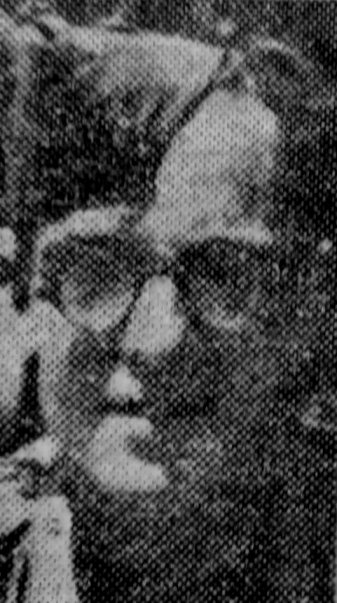South Yorkshire Times, November 27th 1943
Swinton Sergeant’s Impressions

The hours of expectancy and tension among our Forces in harbour, and on shipboard, immediately before the landings in Italy are well described in a letter sent home by one of them, Sgt. W. L. Parker, of 26, Slade Road, Swinton.
Reveille on the fateful morning of embarkation was early at 3 a.m. In a matter of minutes, tea, biscuits, and bacon were prepared in the dark damp woods in which they were cramped; kits were packed and soon trucks were moving to the unit assembly area. By first light the convoy was on its way to the divisional rendezvous, cheered by Scillian peasants, while towering Etna, beautiful in the sun, dominated the scene.
Invasion craft seemed to fill the harbour, taking aboard, yard-by-yard the long line of vehicles and guns and for the men there was tea again. Boarding about mid-day, Sgt. Parker and his friends supplemented their rations of cheese and “bully” straight from the tin, with grapes brought along by their driver, and settled themselves down to await evening and sailing time.
“We knew well enough that we were not due to sail until evening, so we had to pass the next few hours as best we could. For some this was a comparatively easy matter, for others not quite so easy. Most of us clambered up on to the narrow deck and watched the rest of our troops and trucks being tucked away on their various ships. it was an unforgettable sight.”
Across the harbour scores of invasion craft were lined up, sterns against the quayside, looking just like toy boats on a pond. A splash of colour was lent to the scene by the half-dozen or so flags fluttering defiantly from the mast of each little ship. How tiny and unwarlike they looked as they lay at anchor, dwarfed by the huge harbour wall behind them. Along the top of the wall a seemingly never-ending stream of silhouettes moved slowly and silently, to disappear down the steps to the quayside. As each little ship gradually filled the figures re-appeared around the deck rails – doing just what we were doing – watching and waiting.”
The wall was at last empty, and with scarcely a ripple on the water, quiet settled over the harbour. Suddenly there came the air raid warning, which had scarcely been given when enemy planes, intent on strafing, dived towards the ships. Their fire was met by the concentrated salvoes from ships of the Navy and the planes broke formation and fled, one with smoke streaming from its fuselage. Two spitfires headed back to base, after both had performed the victory roll.
Filling in Time
Sgt. Parker, who, during the raid found, found he had jammed on his steel helmet over his side hat, wandered around the ship and saw two lads reading, page-by-page a three months old local newspaper, exchanging sheets after reading, a despatch rider sitting astride his motor cycle, using the handlebar as a rest for the letter he was writing; a driver busily washing a shirt and a pair of socks in an old petrol tin; a small group listening to the Forces programme over the receiver of a wireless truck ; men swimming about the ship’s stern. Somewhere someone was plucking away at the strings of a cheap mandolin, to the accompaniment of a wheezy mouth-organ. A few sat in the shade of their vehicles, talking.
As the sun dipped behind the hills, sailors busied themselves around the deck. In the sunset the ships manoeuvred into convoy position close off-shore. Shapes gradually merged into the blackness of the motionless night and the purple-blue glimmer of signal lamps only broke the blackness.
Life jackets were inflated and tightened. For a while Sgt. Parker watched the phosphorescent glow in the sea; then feeling tired, stretched his blankets on top of a truck.
“I must have dozed off to sleep; but it was not for long. The sky was suddenly rent asunder with the explosions and flashes and crashes and screams of shells that hurtled through the air. The hills of Messina echoed and re-echoed from the thunder of that mighty barrage, a barrage that seemed mightier than those of El Alamein or Mareth. It was a fitting display to mark the fourth anniversary of the war. In the flashes of the guns, we could see our little ships swarming all over the sea. Some had reached the Italian coast. The Eighth had landed. History had been made, and our waiting was ended.”
By six o’clock that morning Parker was on Italian soil.